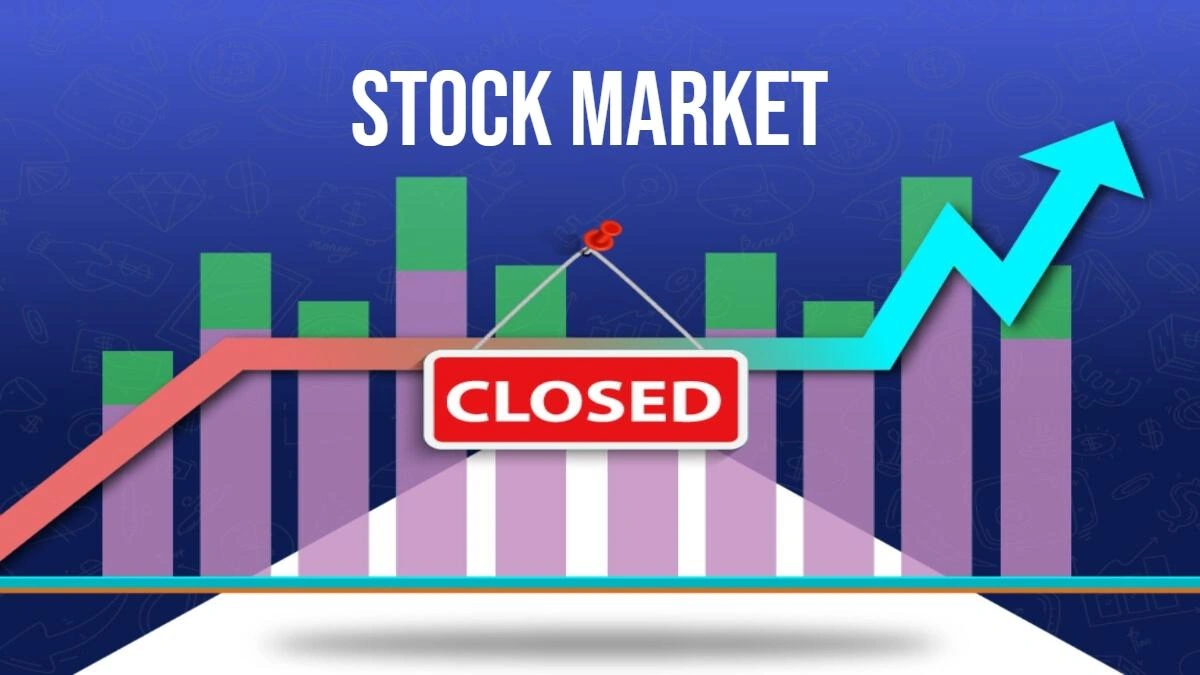Decoding Stock Market Holidays | More Than Just a Day Off
Ever wondered why the stock market takes a break? It’s not just about giving traders a day to relax (though, let’s be honest, they probably appreciate that!). There’s a deeper rhythm to these market holidays , a pulse that reflects the cultural and economic heartbeat of India. So, let’s dive in, shall we? I initially thought it was just a simple list of dates, but there’s so much more to unpack.
The “Why” Behind the Break | It’s All About Efficiency

Here’s the thing: stock market holidays aren’t arbitrary. They’re strategically chosen to coincide with significant national holidays and festivals. But, why? It boils down to a few key reasons. Firstly, these days often see reduced trading activity. Think about it – who’s glued to their brokerage account on Diwali or Holi? Most people are busy celebrating, and that thinner trading volume can lead to increased volatility. What fascinates me is the attempt to maintain stability. The exchanges, like the National Stock Exchange (NSE) and the Bombay Stock Exchange (BSE) , want to avoid erratic market swings driven by limited participation.
Secondly, these holidays provide crucial infrastructure support. It’s not like the entire financial system runs on autopilot. These breaks allow clearing houses and other essential institutions to catch up on processing and reconciliation tasks. Imagine the chaos if everything was running 24/7 without a breather. I’ve seen situations where these processes are not followed – it’s not pretty. And, it is not like the entire financial system runs on autopilot – breaks allow essential institutions to catch up on processing and reconciliation tasks.
And thirdly, it acknowledges cultural values and the importance of shared celebrations. The stock market, while a powerful economic engine, doesn’t exist in a vacuum. It’s embedded within a larger society. Recognizing and respecting national holidays fosters a sense of community and shared identity.
Decoding the 2024 Calendar | Key Dates to Remember
Alright, let’s get down to brass tacks. What specific days are we talking about? While the exact list can vary slightly from year to year, some holidays are perennial fixtures. Republic Day, Independence Day, Mahatma Gandhi Jayanti – these are almost always observed. Then you have major festivals like Diwali, Holi, and Christmas that typically result in market closures. Remember, though – it’s always best to double-check the official exchange websites (NSE and BSE) for the definitive schedule. They usually release a circular well in advance.
Here are some of the major holidays to keep in mind for stock market trading holidays in 2024, which impact equity market holidays :
- Republic Day
- Holi
- Good Friday
- Independence Day
- Gandhi Jayanti
- Diwali
- Christmas
Impact on Investors | Planning Your Trades Around Holidays
So, how does all this affect you, the investor? Well, awareness is key. Knowing the BSE holidays and NSE holidays allows you to plan your trades accordingly. A common mistake I see people make is assuming the market is open when it’s not. This can lead to missed opportunities or, worse, unexpected delays in executing your orders.
But it goes beyond just avoiding errors. Savvy investors use the holiday calendar to strategically position themselves. For example, if you anticipate a significant market event in the days leading up to a holiday, you might adjust your portfolio beforehand to mitigate potential risks. It’s all about being proactive and informed. And remember – it’s better to be prepared than sorry. Speaking of planning – IPO’s need to be planned for as well.
Also, consider the global context. While Indian markets are closed, international markets may still be operating. This can create arbitrage opportunities or expose you to overnight risks if you’re holding certain positions. It’s always important to keep an eye on what’s happening globally.
Beyond the Calendar | Other Factors Influencing Market Hours
It’s important to remember that Indian stock market holidays aren’t the only thing that can affect trading hours. There can be occasional disruptions due to unforeseen circumstances like technical glitches or regulatory interventions. While these are rare, they do happen.
For instance, exchanges might modify trading hours due to extraordinary market volatility or to implement new regulations. These changes are usually announced well in advance, but it’s still prudent to stay updated through official channels and reputable financial news sources. A common occurrence is when the market will have a special Muhurat trading session on Diwali, typically an hour long.
And sometimes, events such as elections, can impact the market. It is important to be prepared for anything and everything, which is what will make you a successful investor. And to be successful, it is important to follow all the market rules, so make sure you have a good and sound relationship with your broker. Speaking of markets, here is more information regarding SBI Share Price .
FAQ on Stock Market Holidays
What happens to my pending orders on a stock market holiday?
Generally, any pending orders you have placed will not be executed on a market holiday. They will remain active and be processed on the next trading day, subject to market conditions and your order validity.
If a holiday falls on a weekend, do we get an extra trading day off?
No, typically not. Stock market holidays are usually observed on weekdays. If a holiday falls on a Saturday or Sunday, it doesn’t usually result in an additional trading holiday.
How can I stay updated on the latest stock market holiday announcements?
The best way is to regularly check the official websites of the NSE and BSE. They publish circulars and press releases regarding market holidays well in advance. You can also follow reputable financial news sources and brokerage platforms.
Are there any differences in holiday schedules between the NSE and BSE?
Generally, the NSE and BSE follow the same holiday schedule. However, it’s always a good idea to verify the specific dates on both exchange websites to ensure there are no discrepancies.
So, next time you see a list of stock market holidays , remember it’s more than just a list. It’s a reflection of India’s cultural fabric, economic realities, and the intricate dance between tradition and modernity. Keep this in mind, and you’ll be well on your way to becoming a more informed and strategic investor.













